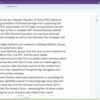Feeling hemmed in by the tide of regulation, taxation, and obligation in modern life? Want to chuck it all in and start living the simple life? Tired of seeing governments and corporations making decisions that affect you without asking for your input? A response – of sorts – to these vexations has been in the growing ‘Free Man’ or ‘Sovereign Citizen’ movement, but this is not going to be something as simple as the proper exercise of one’s franchise and indulging in activism.
The Free Man/Sovereign Citizen movement is a growing phenomenon where Americans – but also an increasing number of citizens in other Western nations – become attracted to a nebulous quasi-legalistic notion that they can refuse to obey some laws without consequences. Moreover, the hard cadre inside the movement often engages in fraud and tax evasion. One can sympathize with their complaints, but not with their beliefs or practices.
Adherents of the Sovereign Citizen’s movement hold that they are bound by nothing but English Common Law – and that they are not obliged to abide by decisions to which they did not freely consent. The movement is an American-based one (though spreading rapidly throughout the old Anglo-Saxon world) and arrived at the dubious conclusion that if one rejects the 14th Amendment to the United States Constitution, one can be a Sovereign free man. This does not mean one lives outside the whole of the law, but only that one should ignore ‘Statute Law’ passed since the ratification of the 14th Amendment in 1868.
More recently, the Redemption Movement has given legs to the Sovereign Citizens by arguing that since the abandonment of the Gold Standard by the US in 1933, American governments have financed themselves by pledging their citizens as collateral against debt. The Redemption Movement’s rationalizations wander off into strange territory after this (holding, among other things, that birth certificates are negotiable security instruments). However, with combined government debt-load of all US residents reaching past $43,800, one can see the attraction in saying “count me out”.
There are disturbing roots to the Sovereign Citizen’s movement – much of its thinking originated with the old Posse Comitatus Movement in the 1980s. The Posse Comitatus held that there was no higher authority in the United States that County governments and no higher authority than the County Sheriff – who could be lynched if he overstepped his bounds. The Posse Comitatus was riddled with old Neo-Nazis, anti-Semites, White Supremacists, and other unwholesome elements.
The Free Men movement had strong survivalist instincts at its roots and some of its pioneers accumulated considerable arsenals for their compounds. The financial ingenuity in creating liens against public officials – and trying to use these to create financial equity – was matched to fraud and counterfeiting to defraud courts. Some members of the group continue to vex US judges and officials from their prison cells with additional liens and bogus documents.
Given these antecedents, today’s police forces do not take the Freemen movement lightly. The accomplice of the Oklahoma City bomber Timothy McVeigh, Terry Nichols, belonged to the early movement and one its founders and his son died in a shootout in May 2010 that also killed two police officers. Neither the Anti-Defamation League nor the Southern Poverty Law Centre spare the movement from criticism – although both seldom look past its questionable founders and impugn all Free Men with that taint.
However, while Neo-Nazis, White Supremacists and others were wrapped around the movement’s roots, by no means do they constitute the entirety of this ideology’s adherents. Many other Freemen (particularly the emerging groups in the UK, Australia and elsewhere) see themselves as Libertarians with a quasi-legalistic notion of individual autonomy. The odd economic theories that permeate the US Freemen are not quite so strongly held but still have some resonance.
Freemen are not outlaws – they maintain they are bound to Common Law and accordingly view murder, robbery, breach of contract, and so on as balefully as the rest of us do. However, they view Statute Law passed by parliaments, legislatures and congresses as optional. Statute Laws include, for instance, such things as traffic laws, income tax, environmental regulations and other such inconveniences.
The Free Men ideology holds that receiving government benefits compromises one’s sovereignty. Perhaps this is a sound notion, but human nature being what it is, do most of them pass up health care in Canada or Old Age Security cheques in the US?
The urge to divest oneself of the complexities of society and live a simple existence is an old one in Western Society as well as in some Asian societies. However, the usual ideal was to take up a life of spiritual exercise and live remotely; not arm oneself to the teeth and start making trouble. However, between the likes of the Kofukuji monks of Nara and the followers of Hugh de Payens in 12th Century Jerusalem, this has always been an alternate tradition.
Groups like the Free Men grow best during hard times, and the prolonged economic slump in the US (and elsewhere) is a boon to them. Most blue-collar American workers had a reasonable expectation of being in a secure job for life, with one or two cars in the garage and a house that was mostly paid for. This was true for most, but by the time the ‘hump’ had passed on the Baby Boomer generation, expectations became diminished. Late boomers (those around 50) and “Gen Xers” (now around 40) grew up with these expectations and so many – particularly those that entered the workforce instead of going after post-secondary education – have found it more and more difficult to achieve them. The slump has hit men in this age-group and socio-economic bracket particularly hard.
An underemployed lower-middle class with disappointed expectations has provided fodder for mass movements before; and it is human nature to either seek someone or something to blame for one’s own condition. The Free Men movement had attracted some 300,000 American members by the end of 2010, and is still growing. If the American economy stagnates (as it may well do), watch for the movement to double in size.
The Free Men and Sovereign Citizens’ movements are not a white-only phenomenon. There are Black and Hispanic subsets within the movement – most famously attracting the Hollywood actor Wesley Snipes who is now serving a jail sentence for tax evasion in the US.
The movement has a place in Canada and appears to be growing exponentially. One Ontario Provincial Police Officer reported two encounters on Ontario highways with members in 2009, and nine by November of 2010. Police on rural/suburban highway duties are more likely to meet Free Men than urbanites — cars without license plates attract their attention. The full scale of membership in Canada is not known, but may already number over 10,000.
Conservation officers in Ontario (and elsewhere in Canada) are finding Free Men engaged in hunting out of season. Hunting regulations are “Statute Law” and Free Men will ignore them. The Ontario Ministry of Natural Resources has made more than a few opponents for itself among rural farmers and property owners in recent years; but has been finding that mass opposition to the Ministry’s sometimes heavy-handed raids and the interventions has become more common. Now it is not unknown for Freemen or Sovereign citizens to be present and Ministry personnel are apprehensive that they may be armed.
It is hard not to sympathize with some of the Sovereignty movement’s libertarian instincts; and it is easy to overlook their dubious roots. However, their economic theories are so much drivel and their energies should be spent in more productive ways. The movement has taken about 25 years to develop so far and may prove problematic in the near future.








